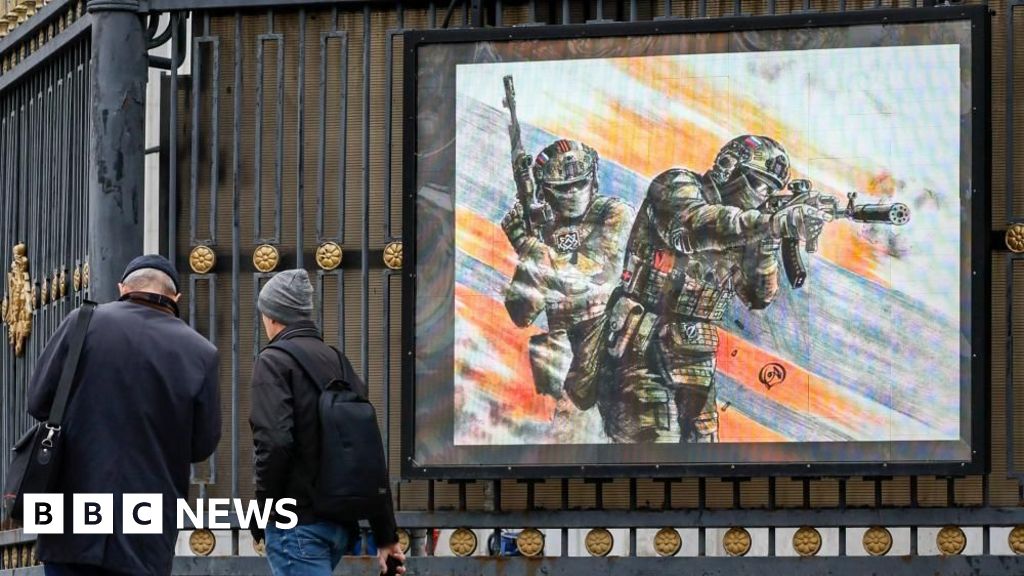It is not unheard of for released convicts return from the war in Ukraine, reoffend and then escape punishment for a second time by going back to the front.
This makes some police officers despair. “Four years ago, I put him away for seven years,” policeman Grigory told the Novaya Gazeta website.
“And here he is in front of me again, saying: ‘You won’t be able to do anything, officer. Now’s our time, the time of those who are shedding blood in the special military operation.'”
Russian courts have routinely used participation in the war against Ukraine as a reason to issue milder sentences.
But many cases don’t even reach court. Moscow has introduced a new law against “discrediting the Russian armed forces,” which has made some victims of crimes by veterans afraid to report them.
Olga Romanova, the head of prisoner rights NGO Russia Behind Bars, says a sense of impunity is driving up crime rates.
“The main consequence is the gap between crime and punishment in the public mind. If you commit a crime, it is far from certain that you are going to be punished,” she tells the BBC.
In 2023, the number of serious crimes registered in Russia rose by almost 10%, and in the first half of this year the number of military personnel convicted of crimes more than doubled compared to the same period a year before.
Sociologist Anna Kuleshova argues that violence is becoming more acceptable in Russian society, especially because criminals can now escape punishment by going to war.
“There is a tendency to legalise violence. The idea that violence is a kind of norm will probably spread – violence at school, domestic violence, violence in relationships and as a way to resolve conflicts.
“This is facilitated by the militarisation of society, the turn to conservatism and the romanticisation of war. Violent crimes committed within the country are being atoned by the violence of war.”
Igor Eidman, Olga Romanova and Anna Kuleshova all spoke to the BBC from outside Russia.

